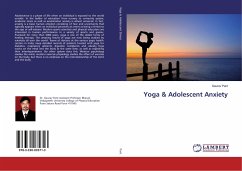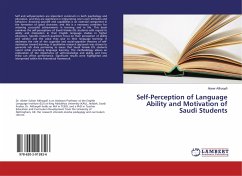
Effect of Yoga Exercises on Achievement, Memory and Reasoning Ability
Memory Improvisation In Enchanted Way
Herausgegeben: Raval, Bhuvan P.
Versandkostenfrei!
Versandfertig in 6-10 Tagen
39,99 €
inkl. MwSt.

PAYBACK Punkte
20 °P sammeln!
The more technical linguistic sense of the term "yoga, describing a system of meditation or contemplation with the aim of the cessation of mental activity and the attaining of a "supreme state" arises with early Buddhism. In Hindu scripture, this sense of the term "yoga" first appears in the middle Upanishads, such as the Katha Upanishad. Shvetashvatara Upanishad mentions, "When earth, water, fire, air and akasa arise, when the five attributes of the elements, mentioned in the books on yoga, become manifest then the yogi's body becomes purified by the fire of yoga and he is free from illness, ...
The more technical linguistic sense of the term "yoga, describing a system of meditation or contemplation with the aim of the cessation of mental activity and the attaining of a "supreme state" arises with early Buddhism. In Hindu scripture, this sense of the term "yoga" first appears in the middle Upanishads, such as the Katha Upanishad. Shvetashvatara Upanishad mentions, "When earth, water, fire, air and akasa arise, when the five attributes of the elements, mentioned in the books on yoga, become manifest then the yogi's body becomes purified by the fire of yoga and he is free from illness, old age, and death." (Verse 2.12) More importantly in the following verse it mentions, the "precursors of perfection in yoga", namely lightness and healthiness of the body, absence of desire, clear complexion, pleasantness of voice, sweet odour and slight excretions.












